The Ultimate Guide to Dog Sitting During Vacations

Are you planning a weekend getaway, a vacation, or a business trip? The question of who will look after your faithful canine companion inevitably arises. But don't worry! Today, there are numerous solutions to ensure your dog is well-cared for while you're away. From traditional options to innovative approaches, we'll guide you through finding the ideal care solution based on your situation and your pup's profile. Let's explore your options!
The Different Dog Sitting Options: Pros and Cons
When it comes to choosing a dog sitting solution, you have several options. From volunteer home-sitting to dog kennels, including care by relatives, professional pet-sitters, or exchanges between owners, each solution has its unique characteristics.
1. The Dog Kennel: A Reliable Option
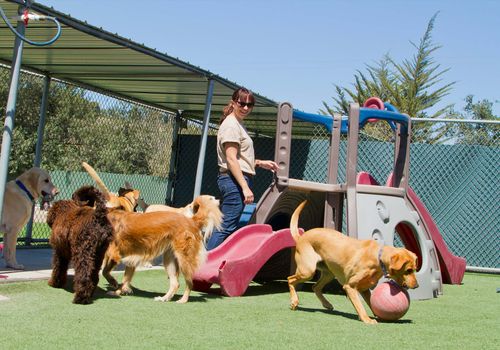
If you want to entrust your dog to professionals during your absence, a kennel might be the right choice for you. Run by dog specialists, it offers a comprehensive and secure service.
Advantages of dog kennels:
- Supervision by qualified and experienced professionals
- Adapted facilities with large spaces and dedicated equipment
- Numerous activities and distractions (agility courses, games, walks)
- Guaranteed security with 24/7 surveillance
- Opportunity for your dog to socialize with other dogs
Points to consider:
- A significant budget, especially during peak season (20 to 50€/day on average)
- An environment that can be stressful for fearful or unsociable dogs
- Risks of diseases, parasites, or conflicts despite precautions
- Schedules and location not always convenient
In summary, the kennel is a professional and reliable solution, but it doesn't suit all dog sizes or budgets. Be sure to choose carefully to ensure your companion feels comfortable.
2. Care by a Professional Pet-Sitter
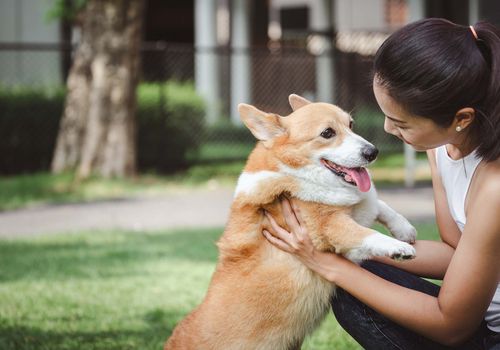
An interesting alternative to the kennel is to have your dog looked after directly by a professional pet-sitter. This personalized service combines many advantages!
Benefits of boarding with a pet-sitter:
- A family-friendly and convivial environment, less stressful than a kennel
- Individual and tailored care by a dog professional
- Activities and care adapted to your companion's profile
- Often the presence of a large garden and play areas
- The possibility of keeping several dogs from the same family together
Points of attention:
- A rate generally similar or even higher than that of a classic kennel
- The need to take your dog to and pick it up from the pet-sitter
- Socialization with other boarders sometimes limited
- Reduced availability during school holidays
Having your dog looked after by a professional pet-sitter is an excellent compromise between traditional boarding and home care. Your pooch will enjoy a personalized welcome and a warm environment while being taken care of by an expert.
3. Having Your Dog Looked After by a Relative
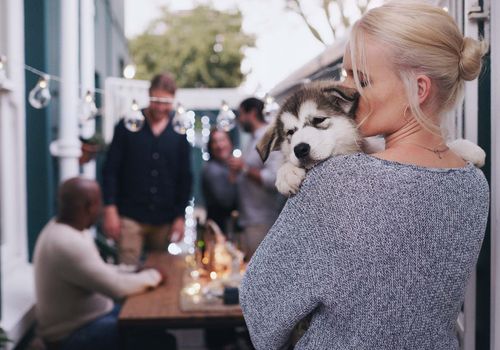
Neighbors, friends, family members... Asking your entourage to look after your dog often seems like the ideal solution. But it can sometimes be a real challenge, especially during holiday periods!
Advantages of care by a relative:
- Your dog is entrusted to a trusted person you know well
- He benefits from a reassuring family environment, often already known
- Care is usually provided free of charge or for a small compensation
- Dates and times are more flexible than with a professional
Disadvantages to anticipate:
- A real challenge to find available relatives, especially in summer
- The need to juggle everyone's constraints to organize
- Your dog will have to adapt to a new place with new habits
- Transport and logistics are your responsibility (travel, kit, food)
If you're lucky enough to have relatives willing to look after your pooch, it's worth considering! It's a practical, economical, and reassuring solution. Just make sure to plan ahead and coordinate well. Also, think about the comfort of your dog, who will have to get used to a new environment for the duration of the stay.
4. House Sitting: The Free Home Care Solution

Looking for free in-home dog care? Consider house-sitting! This innovative service offers a unique, cost-free alternative to traditional pet-sitting. With house sitting, a member of the Nomador community stays at your home and cares for your dog at no charge. This arrangement offers multiple benefits:
- Familiar environment for your dog
- Constant supervision at home
- Mutually beneficial exchange of services
- Flexible scheduling for your travels
Your dog remains comfortable in its usual surroundings, while you enjoy a practical, economical, and personalized care solution. It's advantageous for everyone involved!
Choosing the Right Dog Sitting Option
Now that you're aware of the various dog sitting options, how do you select the most appropriate one? Consider these key factors:
1. Your Dog's Personality and Needs
Your dog's temperament, age, and habits significantly influence the best care option. For example:
- Sociable dogs may thrive in a kennel environment
- Shy or anxious dogs might prefer the quiet of home care
- Senior dogs often need consistent attention and familiar surroundings
- Puppies typically require more time and energy
For personalized advice, consult your veterinarian or a canine behaviorist. The goal is to choose a solution that aligns with your dog's specific needs and personality.
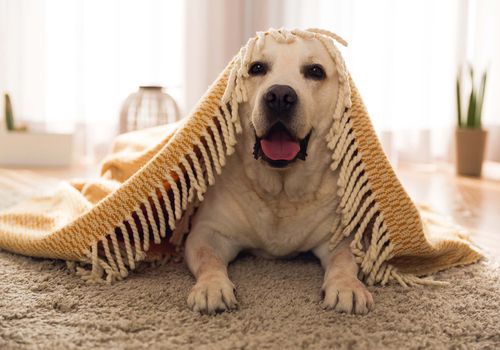
2. The Duration of Care and Your Dates
Your choice of care will also be influenced by the length of your absence. Is it a weekend getaway, a vacation, or an extended trip? Here are some guidelines:
- For short stays (less than 3 days), all solutions are viable
- For medium-length trips (4 to 15 days), prioritize comfort with in-home care
- For longer absences (over 2 weeks), house sitting is ideal
- For school holidays and festive seasons, plan well in advance!
Whatever your plans, start your search for care as early as possible. The sooner you begin, the more options you'll have to choose from, increasing your chances of finding the perfect solution.
3. Your Dog Sitting Budget
Cost is often a decisive factor when choosing a pet care option. Prices can vary significantly between different solutions. To give you a rough idea:
- Expect to pay about 15 to 25€ per day for a traditional kennel
- Up to 40€ per day for an in-home pet sitter
- Flexible contribution for care by friends or family
- Completely free with house sitting!
Don't hesitate to compare offers and carefully read the terms and conditions (additional fees, deposits, etc.). If you're on a tight budget, house sitting is the way to go!
How to Prepare Your Dog Before Your Absence?
You've chosen the care option that suits you best. Well done! Now it's time to prepare your furry friend for their stay. Here are the key elements to consider, regardless of the care option you've selected.
1. Health and Administrative Formalities
First things first, ensure your dog is up to date with:
- Vaccinations (with an updated health booklet as proof)
- Identification (tattoo or microchip)
- Recent parasite treatments (fleas, ticks, worms)
- Civil liability insurance
- Passport, if your pup is from abroad
These are essential for your pooch to be accepted and to minimize health risks during their stay. Also, update your contact details (address, phone number) just in case.
2. The Essential Departure Kit
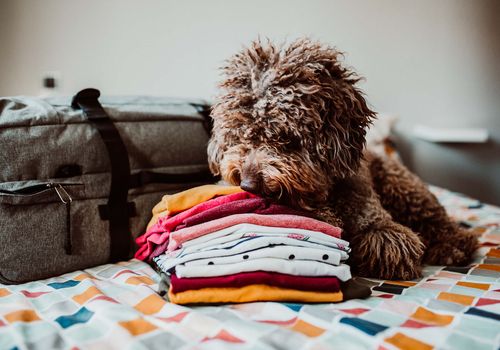
To help your companion feel at home, pack their suitcase with care!
- Their usual food in sufficient quantity (kibble, wet food, treats)
- Their favorite bowls and accessories (toys, comfort items, bed, blanket)
- Their accessory kit (leash, collar, harness, poop bags)
- Their first-aid kit (medications, bandages, cleaning solution)
- And don't forget their health booklet!
Whenever possible, include items they're familiar with that carry their scent. This will help reassure them during your absence.
3. Instructions to Pass on to the Caregiver
Your dog surely has their little habits and preferences. For their comfort and well-being, it's essential to inform the person who will look after them about:
- Their meal times, walk times, and play times
- The name and brand of their kibble
- Their favorite activities and those they don't enjoy
- The basic commands they're used to
- Their behavior around other dogs, children, cats...
- Their medical history (allergies, ongoing treatments...)
Don't hesitate to give the caregiver as many details as possible. The more they know about your furry friend, the better they can take care of them!
4. Think of Yourself to Stay Zen
Having your dog looked after is often a source of stress for owners. However, your state of mind when entrusting your pup is crucial. If you're worried, they'll pick up on it and may have a harder time with the separation.
Our advice:
- Choose a care option that you fully trust
- Have a thorough chat with the caregiver beforehand and share your expectations
- Plan an adaptation period with caregiver visits in your presence
- Stay positive and relaxed on departure day – your pooch will pick up on your good vibes!
- Avoid tearful "goodbyes"; a big hug is enough before leaving
With good preparation, you'll leave with a light heart, and your furball will have everything they need for a great care experience!
The Return from Care: Reunion and Follow-up
That's it, you've got your pup back after their care stay. It's often an emotional moment! Here's how to make these reunions go as smoothly as possible.
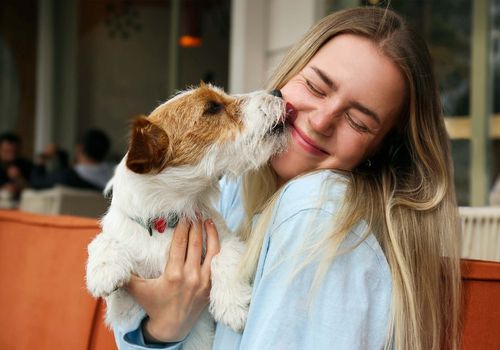
1. Allow Time for Reunions
After a separation, whether short or long, your dog will be thrilled to see you again. It's perfectly normal! Give them time to express their joy and relief. Cuddles, licks, barks, and jumps... Savor these precious reunion moments!
2. Slowly Reclaim the Space
Once back home, your dog will need a little time to readjust to their environment, especially if they're coming back from a kennel or care outside your home. Let them quietly rediscover their territory, sniff their favorite corners, and find their bearings. Avoid rushing or over-stimulating them. A calm and soothing attitude will help ease their transition.
3. Gently Resume the Usual Rhythm
If the stay lasted a while, your companion may have picked up new habits with their caregiver. For meals, walks, bedtime... help them find their rhythm gradually. There's no need to stress them with a sudden change of routine. A few days will usually be enough for them to settle back into their lifestyle.
4. Observe Their Post-Care Behavior
In the days following their return, carefully observe your pup's attitude. Their behavior can reveal a lot about their care experience, good or bad. Look out for signs of contentment: Are they calm? Eating and sleeping well? Happy to be home? Or on the contrary, do they seem stressed, tired, or unsettled? Don't hesitate to discuss any concerns with the caregiver to understand what might have happened during the stay.
5. Give Feedback to the Caregiver
Finally, remember to debrief with the person who looked after your dog. It's important to understand how the care went from their perspective. Gather their observations, questions, and any difficulties they encountered. This constructive feedback will allow you to adjust instructions for future care. And of course, don't forget to warmly thank the caregiver!
Conclusion
Having your dog looked after during your absence is always a bit nerve-wracking for owners. But by choosing the right care option, preparing the stay well, and anticipating the reunion, the experience can be positive for everyone. Whether it's a kennel, pet-sitter, friends, family, or house sitting, it's up to you to see which option best matches your expectations and your companion's needs. By offering a free, flexible, and friendly home care solution, house sitting is establishing itself as the new go-to for happy owners and dogs. Join the Nomador community quickly and revolutionize your pet care while giving meaning to your travels!
Need a Reliable Dog-Sitter?
Travel with peace of mind knowing your dog is in loving hands. Our community of trusted and verified dog-sitters is here to care for your companion while you're away.